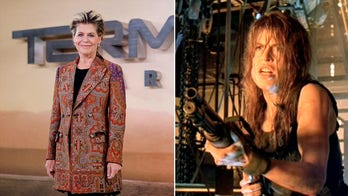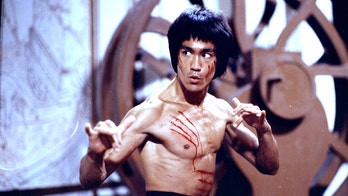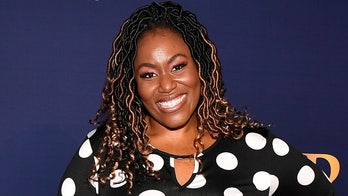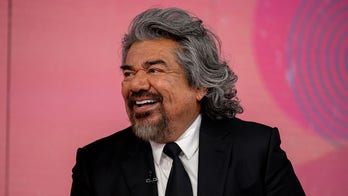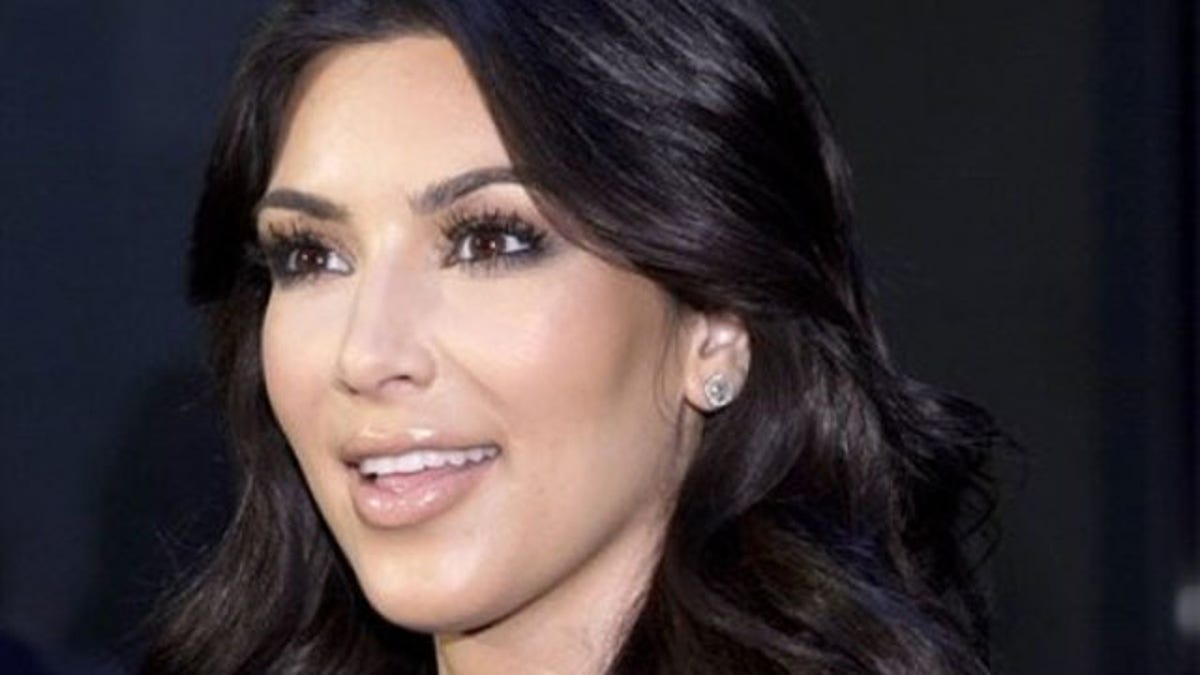
May 29: Kim Kardashian arrives for the IZOD Vanity Fair Party in Indianapolis. (AP)
When it comes to endorsing things for money, celebrities are lined up out the door, down the sidewalk and around the block.
But are companies wasting their money on stars?
A research report published by AdWeek found that 78 percent of people aren’t swayed by celebrity endorsements in advertisements.
Guess nobody told MasterCard..
Last week it was announced the Kardashian sisters, famous for... err, we're not quite sure… are releasing a MasterCard, yes a MasterCard, under their name. That's in addition to the their endless stream of pre-existing endorsements which include beauty products, soft drink, weight loss pills, cupcakes, fragrances, fast food, candles and swimsuits.
The Kardashians are hardly alone.
Gene Simmons earns quite a keep putting the KISS brand on beer, comic books, credit cards, condoms and ... caskets. (No joke). "Jersey Shore" star Mike "The Situation" is set to earn $5 million this year by plugging products for Vitamin Water, Reebok, GNC, and a protein-infused vodka. In China, Jackie Chan has a reputation of endorsing just about anything from electric bikes to anti-virus software to frozen dumplings.
“Celebrity endorsements fall into the ‘whatever works’ category of marketing. If a brand thinks a particular celebrity will catch the attention of the public, in a good way or bad way, they will strongly consider signing a deal with them,” AdRants editor Steve Hall told Pop Tarts. “In some cases, the more ridiculous the better, and currently what sells is the trashiest trash one can find about a celebrity.”
However, it seems at least a few big-name corporations are finally over celebrity pitch-people. Both Pepsi and Chrysler, recently made the decision to steer away from shelling out millions to tag a famous face on their brand.
“The executives at these companies don’t want their brand overshadowed. Pepsi dropped Beyonce Knowles and Britney Spears and Chrysler dropped Celine Dion,” Dan Schawbel, marketing expert and author of “Me 2.0: 4 Steps to Building Your Fame,” told Pop Tarts. ‘Both of these companies have very strong global brand names that don’t need to leverage a celebrity name to get attention.”
Hollywood publicist and marketing expert Mikey Glazer says the platforms that celebrity endorsements work best with are also changing.
“The days of ‘buy Pony sneakers because Fred Durst endorses them’ are over," glazer told Pop Tarts. "People are much more likely to buy an X-Box 360 because Fred Durst tells his Twitter followers where and when they can play against him live online. The trend in Hollywood is to market through celebrities organically, rather than having them stand in front of a sign hawking a product.”
The biggest game changer over the past 18 months has been the explosion of Twitter. Now stars and starlets can boost their bank accounts by hundreds of thousands of dollars with one inconspicuous little tweet. Last Thursday, Kim Kardashian described The Container Store as “pure heaven” and Whitney Port linked to TRESemme and credited them for her “chic hair.”
But is this “easy money” approach starting to backfire?
“Sometimes celebrities get sloppy. One time during last Christmas shopping season, Kim Kardashian was trying to plug a pair of Reeboks, tweeting ‘Love These… go get them at XXX,’ and instead of the store name, she linked not to the store, but to the director of marketing for the sporting goods chain, likely the one who set up the poorly concealed endorsement,” said Glazer.
According to Schawbel, a big reason the public doesn’t much care for celebrity endorsements is because so many stars are turning their audience off by hawking too much, or hawking things that don't make sense when taken together.
Take Kim Kardashian again. She “officially” lends her name to weight loss-related products like QuickTrim and a workout DVD, but then also turns around and takes endorsement dollars from Carl’s Jr, Famous Cupcakes and Sugar Factory’s “Signature Series” Couture Lollipops.
Endorsements can also cause havoc for big names who may have a hard time sticking to restrictive contracts. Charlize Theron, Teri Hatcher, Paris Hilton, and Jessica Simpson have all been slapped with multi-million dollar lawsuits alleging they took money to “face” a brand, then allegedly violated their contracts by wearing or singing the praises of rival brands.
In addition, the Federal Trade Commission is now cracking down on bloggers, especially those who may be getting paid with free merchandise or big bucks for pumping up products without disclosing they're doing it. The additional language on the FTC's revised set of guidelines acknowledged that bloggers who don’t disclose their payments to their readers are violating the law.
“People like Kim Kardashian and The Situation get paid to tweet, and if they do not reveal that detail in some way like TV programs do at the end of their shows ‘promotional consideration paid for by the following,’ they could get a knock on the door from the FTC,” Glazer explained.
However, Forbes reporter Jeff Bercovici wrote that over the last twelve months, the FTC only publicly announced one investigation involving a blogger, and thus questioned whether the updated regulations were necessary in the first place.
So if you’re sick of seeing stars incessantly flaunting anything and everything, what can you do?
“Celebrity endorsements will only stop once the public’s desire for it ends. But since everyone seems to enjoy their daily dose of schadenfruede, or more positively, fixation with and desire to emulate the life of a celebrity, it doesn’t seem likely celebrity endorsements will end any time soon,” Hall said.
- Deidre Behar contributed to this report.

